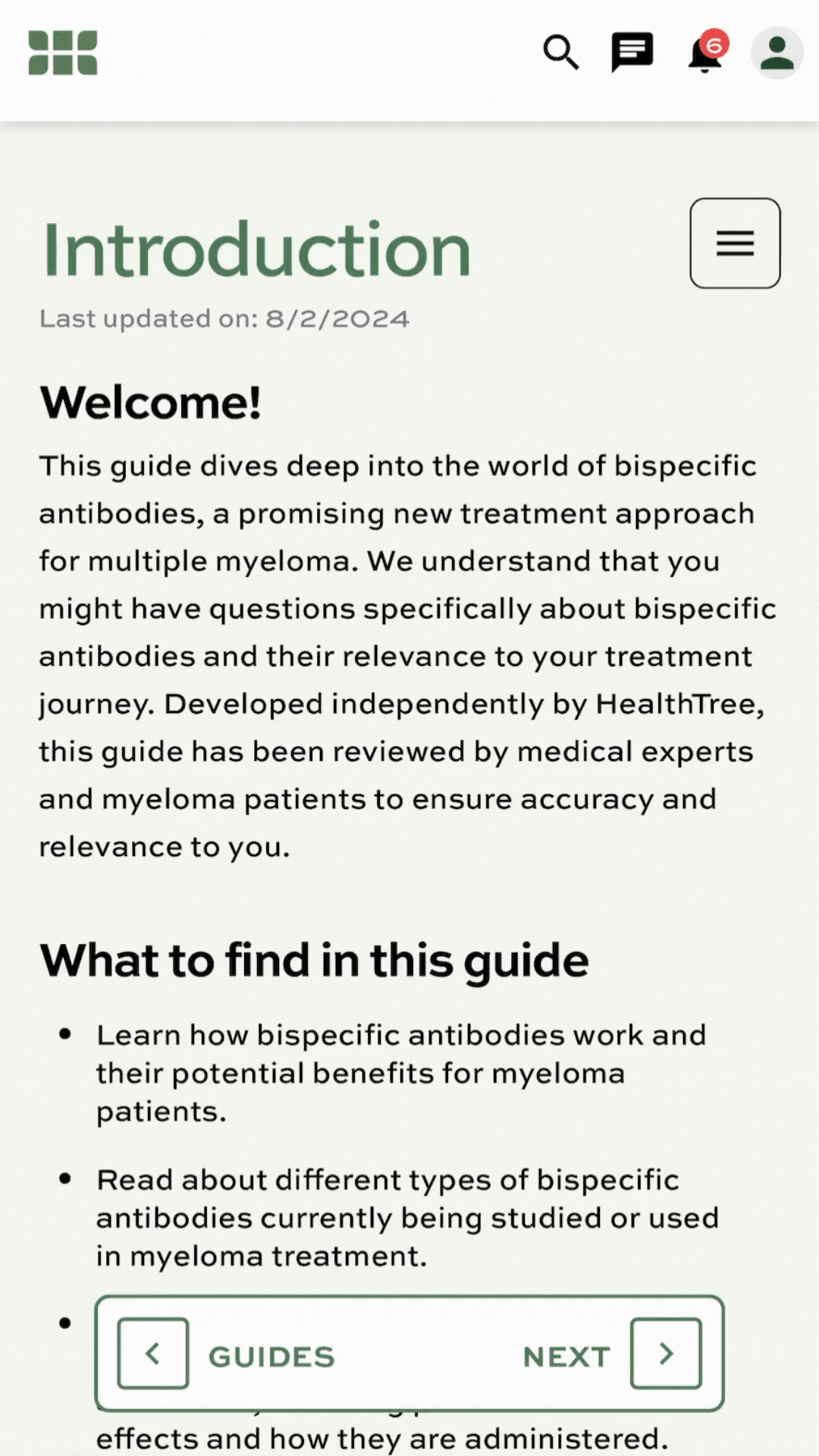Introduction
Welcome!
This guide dives deep into the world of bispecific antibodies, a promising new treatment approach for multiple myeloma. We understand that you might have questions specifically about bispecific antibodies and their relevance to your treatment journey. Developed independently by HealthTree, this guide has been reviewed by myeloma physicians, Sean Maximillian Taasan, MD, UT Southwestern and Danai Dima, MD, University of Washington School of Medicine, along with myeloma patients to ensure accuracy and relevance to you.
What to find in this guide
- Learn how bispecific antibodies work and their potential benefits for myeloma patients.
- Read about different types of bispecific antibodies currently being studied or used in myeloma treatment.
- This guide will address common questions patients might have about bispecific antibodies, including potential side effects and how they are administered.
What you won't find here
- This guide won't delve into the general aspects of multiple myeloma, its diagnosis, or traditional treatment options.
- For foundational information about myeloma, disease progression, response criteria, or treatment options, we recommend exploring our rich library of resources:
How to navigate the guide
Because this guide is comprehensive, it can be difficult to navigate. We invite you to use the side navigation panel to find different sections and use the left and right arrows on each page to browse through the information in each section.
If you are on a mobile device, click the horizontal lines icon near the top right of your screen in order to find the navigation panel, as seen in the tutorial below.

Be aware that not all of the content in the guide is listed in the side navigation panel. For a comprehensive list of each section found within this guide, access the table of contents below.
Keeping up-to-date
The field of bispecific antibody research is rapidly evolving. While we strive to keep this guide updated with the latest information, some data and approval statuses may not reflect the most recent developments. The guide is timestamped, and each page shows the last time the information was updated.
Remember
This guide is intended to be informative, but it shouldn't replace conversations with your medical team. Always discuss any questions or concerns you have about bispecific antibodies or your treatment plan with your doctor.
Thank you to our sponsors:



Authors: Audrey Burton-Bethke, Marta Llobet Canela